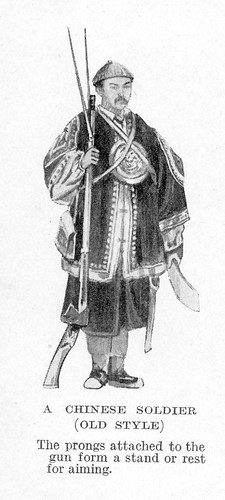2011年5月29日 星期日
2011年5月28日 星期六
Final Project-Art work
British VS Chinese
British VS Chinese
Lin Zexu Burning Opium
Emperor Daoguan
Lin Zexu
People making opium
Opiums
Treaty of Nanking
Materials
Opium
Queen Victory
People smoking opium
Final Project-Newspaper Article ( Chinese/English)
Chinese
English
The Beginning of East-West Relations
中西的貿易衝突起火點
西元15世紀末,由於新航路的發現,歐洲人陸續的從西方來到中國,與中國人貿易.
到了清代,清朝的朝廷為了管理及預防外國人,定下了許多的通商規則.重要的有:
- 貿易的港口僅限於"廣州"一地
- 外國的商人只能透過中國商人組成的"公行"進行交易,不能直接與中國官方往來.
西元18世紀中期,英國積極的發展工商業,希望能往中國市場發展,因此,他們試著打破中國人定的通商規則.
清朝乾隆與嘉慶年間,英國兩次派人到中國請求改善通商的規則. 使者分別為"馬加爾尼"(George Macartney) 和"阿美士德" (William Amherst). 由於英國與中國的禮節不同,應此兩位使者在覲見皇帝時都有跪拜的爭議,英國的請求都遭到拒絕,中外貿易的問題並未解決.
鴉片戰爭
早期的中外貿易,因中國對西方的商品需求不大,而西方人則十分喜愛中國的茶葉,絲綢,瓷器等商品,使中國賺了英國不少白銀. 英國外了賺更多錢,努力的銷售鴉片.這不僅損害中國人的健康,更讓白銀大量外流,嚴重影響經濟. 道光皇帝因此派林則徐前往廣州查禁鴉片,引起英國政府不滿,派兵攻打中國. 中英在道光20年(西元1840), 爆發了鴉片戰爭,結果中國戰敗.
道光22年(西元1842年),中英簽定南京條約,中國除了要賠還英國被燒掉的鴉片費用與割讓香港之外,還必須開放廣州等五口為通商口岸. 隔年簽定南京條約的續約,中國給予英國設立租借,協定關稅,領事裁判權(一國人民在別國的土地內,不受當地的法律拘束,而由其本國領事按照本國法律來行使司法權),片面最惠國等特權(最惠國是指在通商,稅收,法律等方面兩國給予對方優惠待遇.但中國與其他國家簽訂之後,往往只片面規定外國享有優惠待遇,所以稱為片面最惠國).在這之後,美國,法國紛紛跟中國簽訂同樣的條約,享受相同特權.
English
The Beginning of East-West Relations
At the end of the fifteenth century, the discovery of new shipping routes allowed Europeans to travel to China for the first time. Europeans began trading with the Chinese but trade was restricted to the port of Guangzhou also known as Canton. Foreign merchants also had to rely on cohongs who would represent them when dealing with Chinese merchant. This pattern continued until the Qing dynasty. In the middle of the eighteen century, England hoped to open China’s market to British goods. The British sent George Macartney during the reign of the Emperor Qianlong, and William Amherst during the reign of the Emperor Jiaqing. Both attempts were unsuccessful and the Emperor Qianlong famously declared, “We possess all things!”
The First Opium War
From the beginning, there was very little demand on the Chinese side for foreign goods. The British on the other hand, had a great appetite for Chinese goods like tea, silk, and fine pottery. As a result, large amounts of silver were entering China, but very little was leaving China. The British searched very hard for a product that could restore the trade balance; they found opium. In a short period of time, many Chinese people were addicted to opium and more silver was leaving China then entering China. The Emperor Daoguang sent Lin Zexu to Guangzhou to solve the opium problem. In 1840, Lin Zexu destroyed all the opium he could find, but the British response was swift and severe. China was quickly defeated in the First Opium War.
Picture's Link: http://www.pastpatterns.com/040.html,
2011年5月10日 星期二
Final Project-Local problem
The Opium Wars
The local problem in Guangzhuo is the opium trade and addiction. Opium importation rose steadily from 200 chests per year under the Yongzheng Emperor to 1,000 under the Qianlong Emperor, 4,000 under the Jiaqing Emperor, and 30,000 under the Daoguang Emperor. In an attempt to solve this problem, the Daoguang Emperor issued many edicts against opium in the 1820s and 1830s. Chinese Commissioner Lin Zexu took the extraordinary step of writing to Queen Victoria in an effort to solve this problem. “Suppose there were people from another country who carried opium for sale to England and seduced your people into buying and smoking it; certainly your honorable ruler would deeply hate it and be bitterly aroused. We have heard heretofore that your honorable ruler is kind and benevolent. Naturally you would not wish to give unto others what you yourself do not want.” In 1838, Commissioner Lin Zexu destroyed 20,000 chests of opium. In response, the British government sent its formidable navy to seek compensation, which resulted in the opening stages of the Opium War.
Lin Zexu was not able to solve the opium problem. The Treaty of Tianjin signed after the Second Opium War (1856–1860) forced the Chinese to make opium legal. Opium remained legal until the early 20th century. Rather than fight the supply, China should reduce the demand. They could enlist the help of traditional Chinese doctors to use acupuncture and herbal remedies to treat opium addiction. Even though opium is legal, opium dens do not have to be. The government could focus on closing opium dens and getting medical help for those inside. With no place outside the home, opium smokers will soon have no place to smoke. China should shift to “soft” rather than “hard” methods.
訂閱:
意見 (Atom)













